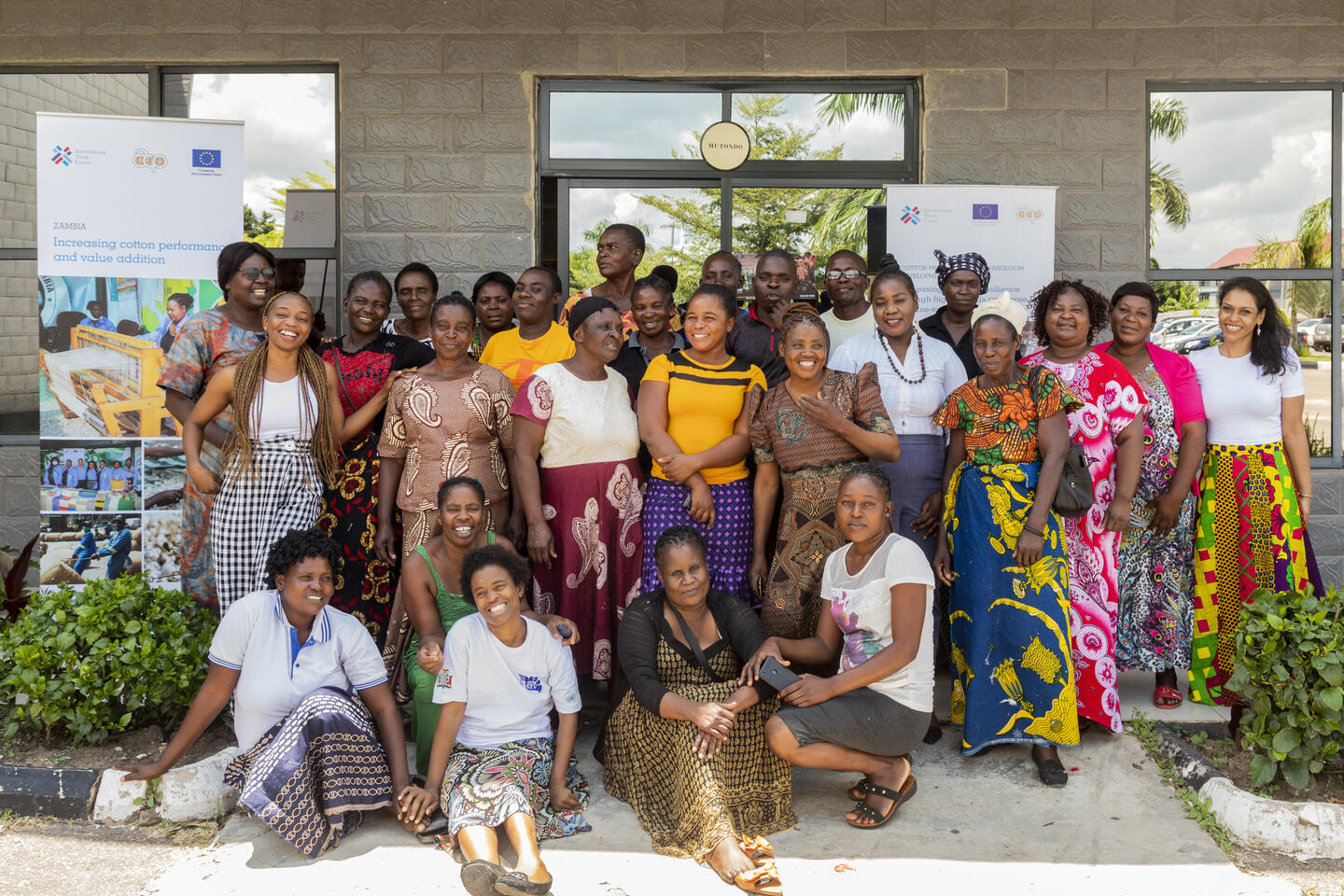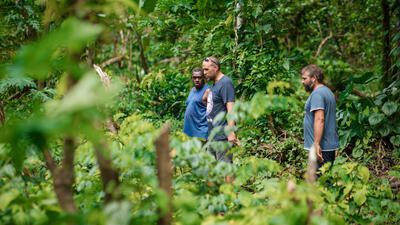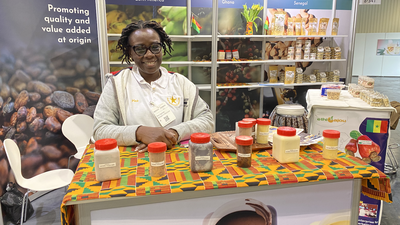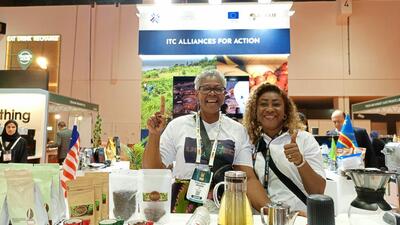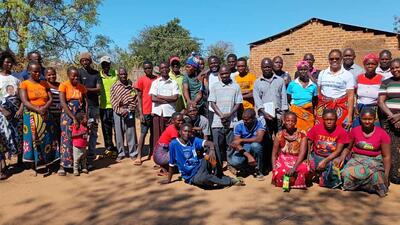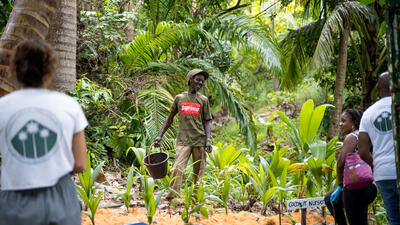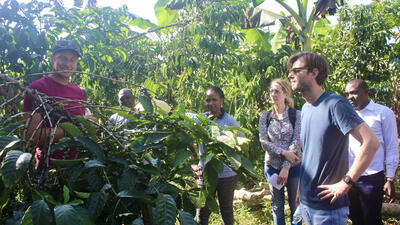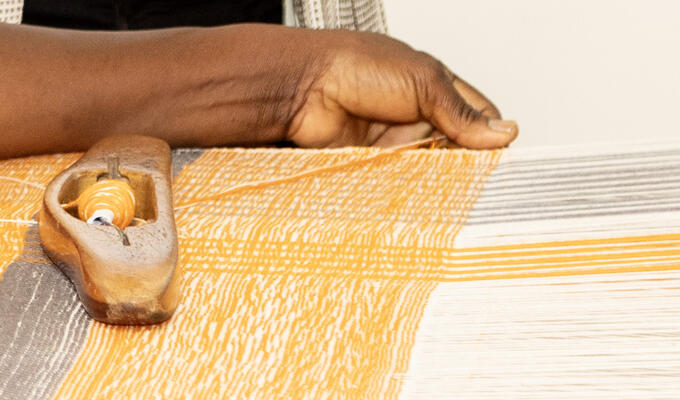
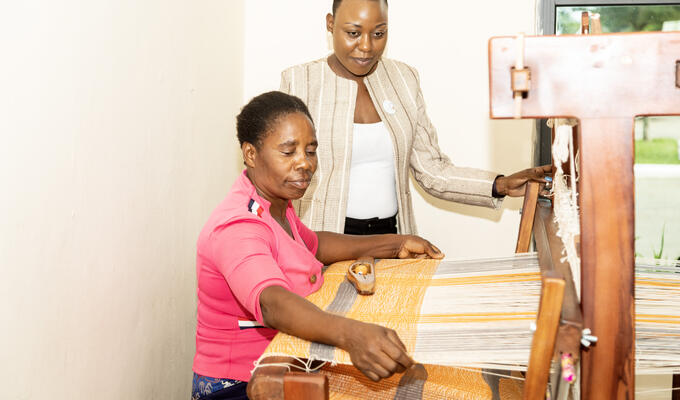
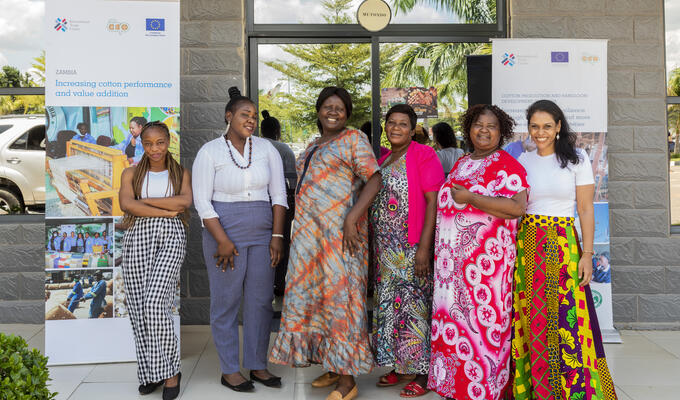
Side by side: Zambian women build up on each other’s talent
While watching Francisca Chisuta weave coloured cotton threads in her handloom, Mercy Chewetu learns more about the artisanal work and beautiful designs produced by women in rural Zambia.
Chewetu is the founder of Queen of Chitenge Fashion, a famous Zambian brand that designs modern, elegant Afrocentric fashion.
Chisuta is a cotton farmer living in a rural southern village and belongs to the Handloom and Textile Technologies Association of Zambia (HATTAZ). The association gathers 1,500 women and youths from rural communities, and encourages local production and use of fabrics woven in Zambia.
Both these inspiring women are dedicating their lives and work to showcase the talented cotton-based fashion created in Zambia. They attended a week of activities in early March organized by the International Trade Centre in the framework of the ACP Business Friendly project in the country.
The ITC Advanced National Weaving Training brought 20 weavers, who are all cotton farmers themselves, from the countryside to Lusaka to improve their techniques – including spinning, tying, and dyeing. The week was organized around International Women’s Day, to empower rural weavers and give visibility to their handmade products in the capital.
“This week has been special to me,” Chewetu said. “It is a representative opportunity to join HATTAZ and these skilled women in the week we bring to attention to the power and importance of women in business and the country’s economy.”
Her brand uses handwoven fabrics in its clothes.
“The cotton value chain in Africa has immense potential. In my brand, we intentionally buy Zambian handmade woven cotton fabric produced by the women weavers from Lusaka, Copperbelt, Southern, Central and Eastern provinces,” she said.
“The use of handwoven fabric creates employment for over 1,000 women in both urban and rural areas, reducing poverty and improving the living standards,” she added.
Weaving cotton they grow themselves
Doris Phiri, programme coordinator at HATTAZ, explained that association trains women and youth to make fabric using cotton they grow.
“Many women farmers do not know how to explore and add value to the cotton they produce. HATTAZ with support of ITC has been showing the versatility of cotton and potential of income generation,” said Phiri. For her, the participation of the Queen of Chitenge Fashion brand is another example of how establishing local connections can strengthen the national value chain to help Zambia women export high-quality finished products; “I believe these talented women will soon start to export to international markets!”
“Building on the incredible creativity of African designers, we have supported artisanal fibre value addition and creating new business linkages,” said Jayna Kika, ITC’s Senior Programme Assistant. “ITC has been enhancing the cotton sector in Zambia, as we see cotton not as a simple crop. Instead, cotton is a way to address wider development concerns, to promote decent jobs and environmentally friendly, sustainable, and fairly priced products.”
Chisuta has benefited from all the activities organized by the ACP project.
“Since I started to attend the ITC events with HATTAZ, I had the opportunity to showcase my products in different places, including the Zambia Agricultural and Commercial Show where the Zambian President Hakainde Hichilema visited our stand” in September, she said.
“I praise my colleagues, weavers that have boarded in this journey with me,” she said. “We celebrate each other’s achievement and development and look forward to seeing our products reach international audiences.”
About the Programme
The ACP Business-Friendly Programme is funded by the European Union and the Organisation of African, Caribbean and Pacific States (OACPS) and jointly implemented by ITC’s Alliances for Action, the World Bank and UNIDO.
It seeks to improve the ability of agribusiness firms in ACP countries to compete, grow and prosper in domestic, regional and international markets. Through the Alliances for Action approach, it promotes inclusive and sustainable agricultural value chains that value all stakeholders from farm to shelf.
Alliances for Action is an ITC initiative that seeks to transform food systems through producer partnerships that cultivate ethical, climate- smart, sustainable agricultural value chains.
